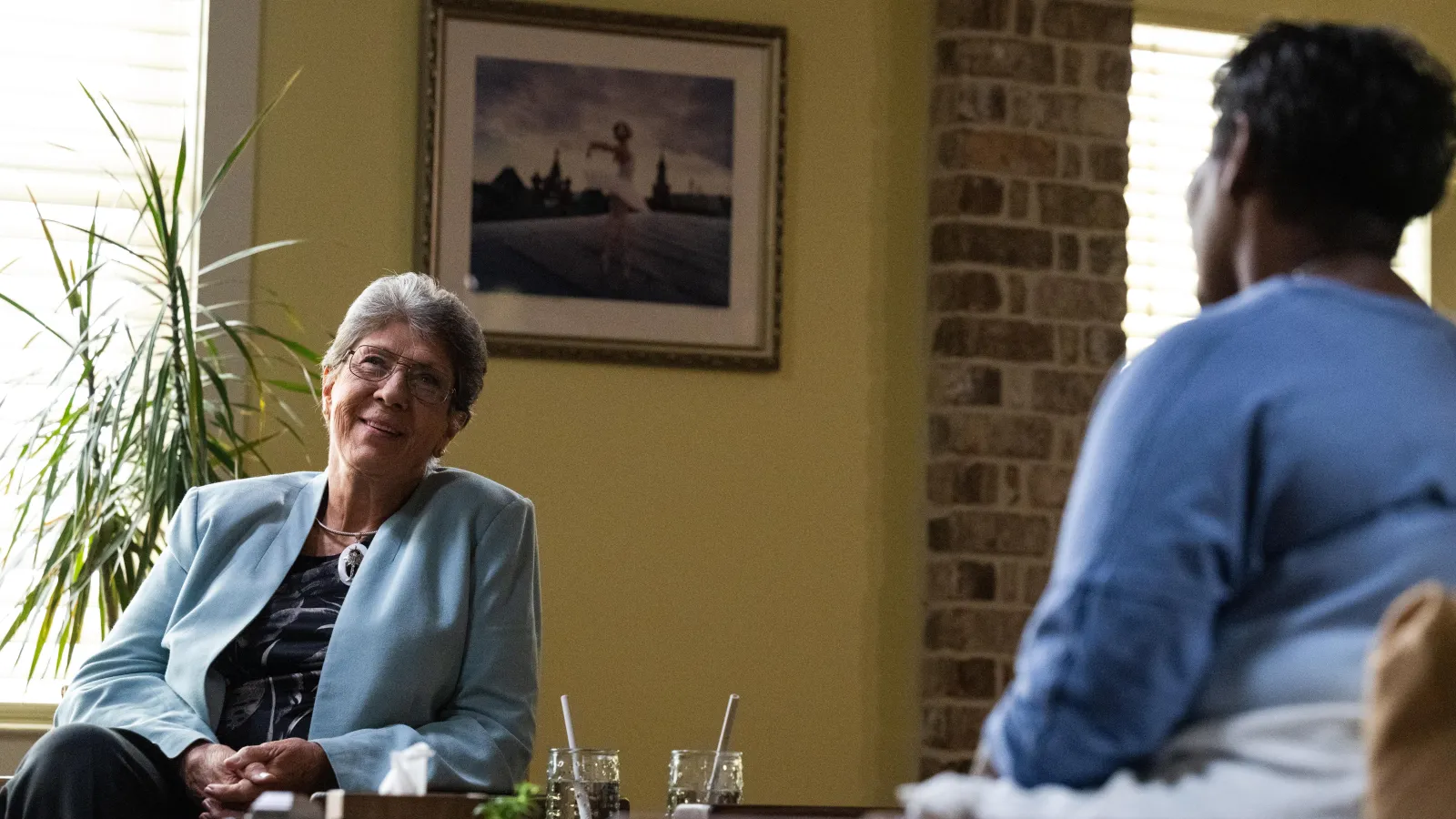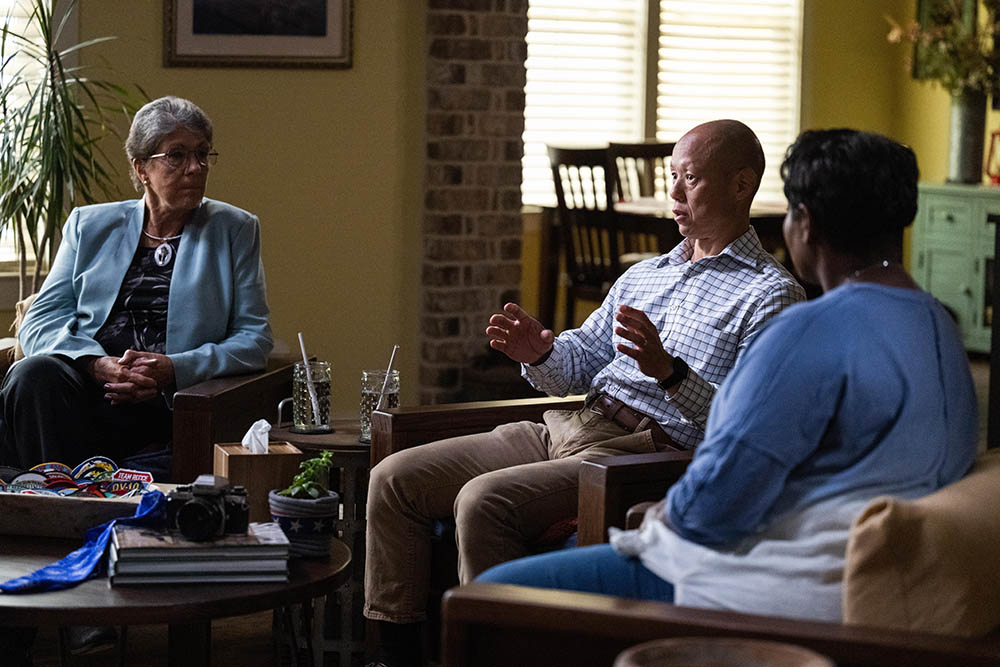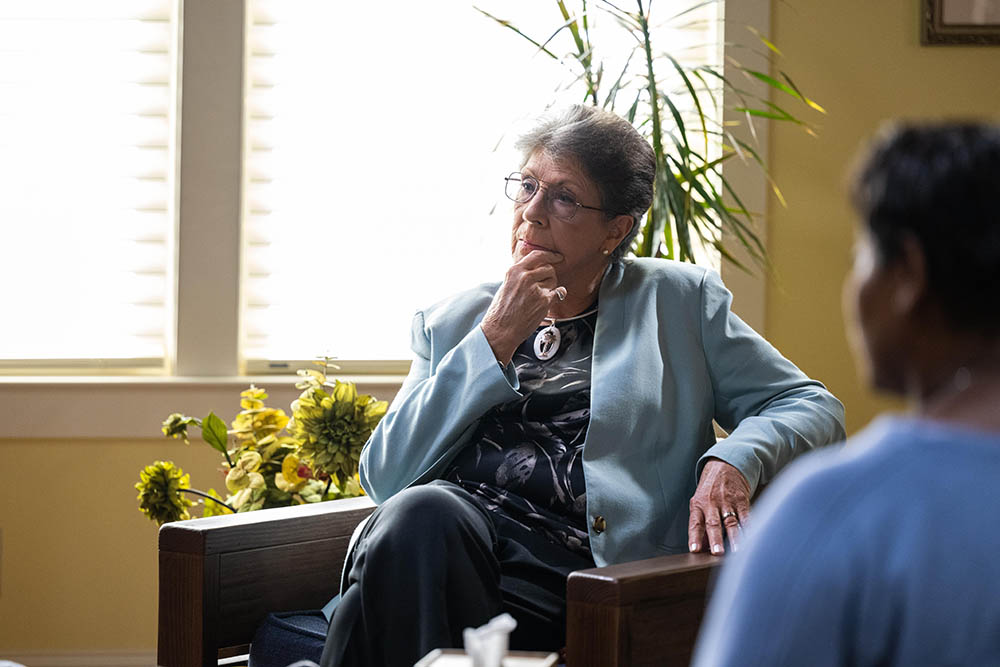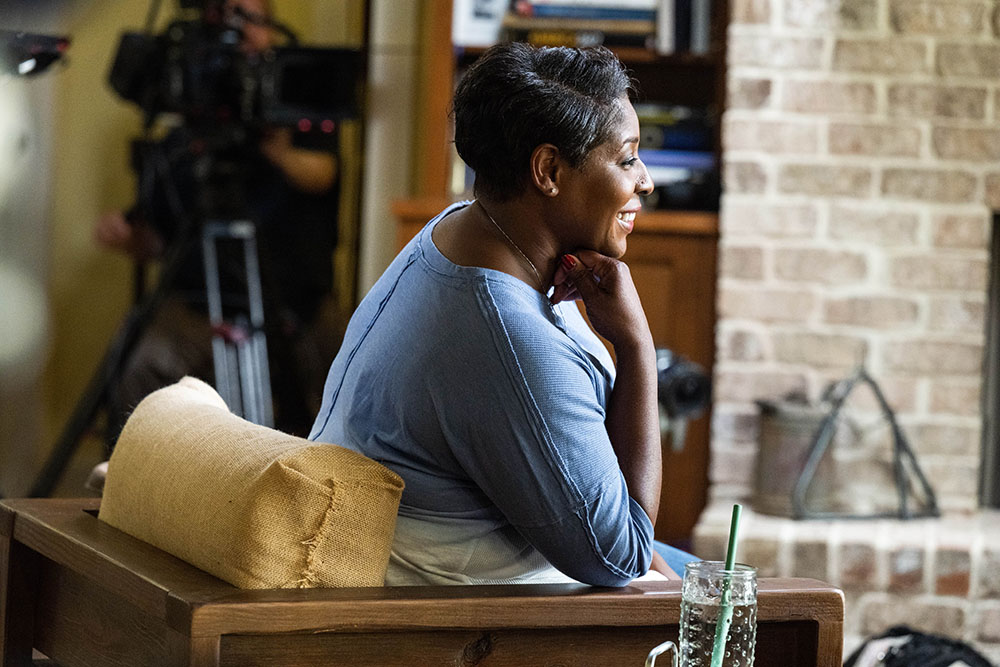
Episode 102 - Transforming Military Mentality
Stacy Pearsall sits down for a candid conversation with Bambi Bullard, Dan Wrightsman and Desiree Gordon, three fellow veterans who were once in charge of transforming new recruits, to talk about the importance of this process on episode 102 – Indoc. A few topics of conversation relayed around mental health, leadership style, and military mentality.
Q: Stacy to Bambi, Dan, and Desiree
I think early on, I learned the military mentality within our community that seeking emotional support is frowned upon. It has not been in our vernacular until recently. Do you think the military have changed how they treat the whole individual?
A: Dan
“So, they're changing their mindset on it. So it used to be, if you were gonna be a leader, if you were in a leadership position, First Sergeant becomes a commander or battalion, any leadership position, you had to be viewed as you were, zero issues with you. Your finances, marriage was good, you didn't over-drink, didn't do anything dumb or stupid, and you were mentally strong and physically strong. You were supposed to be what... Right? Because the idea is that, if you couldn't take care of yourself, then how could you take care of your soldiers? And the same thing with the... In basic combat training, the drill sergeants, they go through a big assessment to make sure there's a right NCO to be a drill sergeant, 'cause they wanna make sure they don't have any pay issues, don't have any behavioral health issues. So they're looking' at that, and saying, hey, we wanna make sure, if they do have issues, that they have resources to get there. So there's a lot of emphasis for the drill sergeants, company commanders, first sergeants, who are in that environment to say, hey, if you need help for behavioral health, these are the places you can go to. For the trainees, the rules are still set by recruiting command of who can come in and who can't. So, some behavioral health, you'll just never be able to come in. Most likely, I mean, it's been a while, but if you have attempted to commit suicide, you're not gonna be able to come in. If you have any type of personality disorder diagnosed and you're taking medication for it, you're not gonna be able to come in. So, if you're in the military, and you do have issues, yes, with the military, all branches have great behavioral health services, and will take care of... For the leaders and for the drill sergeants, the model's changing, too. Where it used to be you had to be that hard rock and you couldn't be broken, to now, it's like, if you need help, go get help. That's part of what being a good leader is. Go seek behavioral health. The days of sneaking around to the back of the behavioral health clinic and talking to a doctor at 10 o'clock at night is hopefully being a thing of the past.”

Q: Stacy to Bambi, Dan, and Desiree
“Now, my drill instructors would say some very colorful things, but I know that there were some restrictions on, or there was allegedly restrictions, on what drill instructors were allowed to say or permitted to say. And so there was a whole new dictionary per each drill instructor. I would like to hear a little bit from the drill instructor side of the house, some of the words that you've created over the course of your careers.”
A: Dan
“I always remember the drill sergeants used to call us dick, and we're like, you can't call us that. They're like, no, it's a Defensive Infantry Commie Killer. That's what you guys are. We're like, okay, fair enough. So, they always used to call us D.I.C.K., and we're like, I don't know. We never said it to them, like, I don't think they can call us that. A D.I.C.K. is a Defensive Infantry Commie Killer. We laughed. We just laughed. We thought it was funny. I mean, back in '92, nobody cared."
A: Bambi
“Amazingly enough, when I was on the drill field, women drill instructors were not allowed to swear at recruits. You could not cuss. You could be relieved from duty if you swore at, or in front of, a recruit. So, we had to get creative with some of the terms, and I learned how to cuss without cussing. It wasn't easy. And I did make the mistake once not knowing a recruit was in the area. Said something to another DI, and that recruit turned me in, went up and ratted me out to the senior.”

Q: Stacy to Bambi, Dan, and Desiree
“Each and every one of us have a military mindset that began in basic training, right? It's ingrained in us, instilled in us. So, no matter whether we hang up the uniform, we can still talk in 24-hour clocks, acronyms. We're always 15 minutes early to anything, and we're OCD about everything. And no matter what, we have super high expectations about what our team is going to bring, and what we bring to the team. So, with that said, what I wanna hear from you is, what are you doing today as a veteran, and how can our colleagues, friends, community better understand us and that military mentality, and maybe use that to their advantage?”
A: Bambi
“When I left, I took everything that I learned with me, and have applied it, in essence, to everything that I've tried to do since. I mentioned earlier about being, having patriots in my family, in the Daughters of the American Revolution. And I'm also working to set up a non-profit group that's gonna be statewide. Actually, both North and South Carolina will be the focus of this group for women veterans, for the Carolina's Women Veterans Resources and Retreat. So, we're setting up another activity, another non-profit, where women can be the focus, and that we can recognize those, in particular, paying attention to the older women veterans, the ones who have been told, and who have the mindset, that they're invisible… And that's one of the saddest things that I've ever heard, is when a woman refers to herself as an invisible veteran or claims that she doesn't deserve any benefits through the VA system, because she didn't serve in combat, which is not true, absolute fallacy, or that she doesn't rate any of those benefits. The number of women who didn't go to school, because they didn't know that they could use the GI Bill, or the Montgomery Bill, or whatever was available to them. They didn't think they earned it, or that they warranted those benefits. So I'm doing everything I can to change that today.”
A: Dan
“So I work with the South Carolina Department of Veterans Affairs as a Midlands Regional Integration Officer. So, my job with that is to find organizations that can assist veterans who need a hand up. Sometimes, veterans, from time to time, will get in a situation where they wanna find better employment, or they want to, they have some issues with utilities or behind on bills for whatever reasons. And so, I find them organizations that can connect with the veterans, and that can give them some assistance as needed. One thing that kinda drew me to this job, and applying for it, was 'cause I always enjoyed helping soldiers. And so, this was a way to continue to help veterans, same situation, same type of scenarios, and still finding those organizations and resources that can provide that assistance. So, while it is a little different, it was a little fresh, because, hey, you just became a veteran yourself, but the mindset and the same type of go-to-work attitude of trying to find the organizations that can help the veterans.”
A: Desiree
“Okay, so the one thing that I've taken from the military, and being a drill sergeant, is the fact that I love teaching. And so, I currently teach at Midlands Technical College, and sometimes I find myself calling' the students, soldiers. It slips a lot. I'm like, I'm sorry, y'all are not soldiers. But any who, the military made me very, very independent. I love cutting my grass, and landscaping, and I love all of that stuff. And the other thing it's done is, it gave me motivation. And even when I felt like I didn't have it, I just kinda found myself doing counseling, so that I can get it back. So, the other thing that I do is, I write children's book about my divorce experience to help other families get it right, whereas, I didn't. So, I'll write, illustrate, and self-publish books."

img {height:auto !important;}
Share